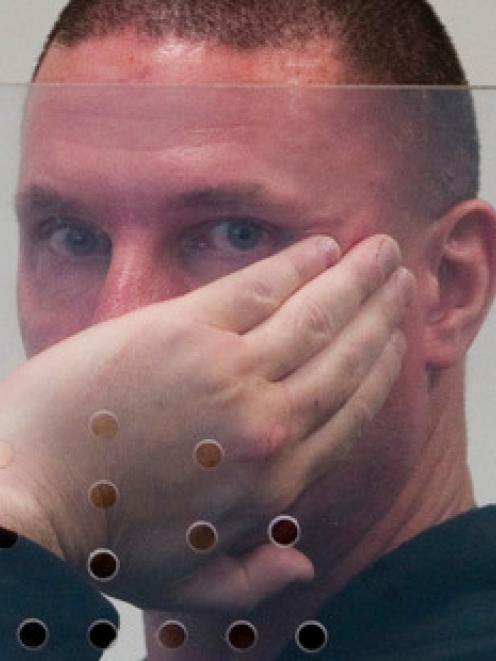
Glenn Green has been jailed 45 times and suffers from erotomania - believing someone, usually a stranger or high-profile person, is in love with them.
He becomes fixated on women he sees on the street or in magazines, and harasses them by writing "abusive"and "frightening"letters and text messages, calling them and sitting outside their homes, and there are fears he will reoffend.
Green, who uses several aliases, has 201 convictions spanning 26 years.
They include criminal harassment, perverting the course of justice, breaching protection orders and misuse of a telephone.
Green is to be released on June 7 after completing a 30-month prison sentence for criminal harassment.
He was earlier denied parole because he was deemed a risk to the community.
He will meet the parole board this month, and release conditions for up to six months may be set.
A victim stalked since she was a teenager told the Herald on Sunday she feared Green's offending would escalate.
The woman hoped he had benefited from psychological treatment while in prison.
"You can say nothing to him for months, for years; and he's conjured up a marriage, two kids and a weekend in Hawaii," she said.
"You can't say anything to him because he's driven by his own imagination."
Forensic psychiatrist Dr David Chaplow said those traits were the hallmarks of a person suffering erotomania.
"It's quite rare and what usually happens is, a person begins to believe in a delusional sense that somebody is in love with them," he said.
"Usually these are prominent people in their lives such as doctors or possibly news reporters and policemen."
Private investigator Daniel Thompson-Toresen has worked for three of Green's victims and fears for their safety.
"I think I would be very surprised if he has been rehabilitated in that time, and I would stress my concern for the safety for the well-being of the victims, particularly the ones I've had dealings with."
Green was denied parole in October 2012 because he presented an "undue risk to the safety of the community"and had "an absolute disregard for court orders".
He waived his right to appear at a second hearing last October, when the board recommended that he have individual psychological treatment to address his risk and to develop a safety plan.
In November 2011 he "maliciously targeted and preyed on"a 19-year-old victim in a way that was labelled "abusive, sinister, threatening and frightening"by Judge Pippa Sinclair.
The victim's mother changed the home phone number but Green conned the victim's elderly grandfather into giving him her new number.
Although the young woman was never physically harmed, the "persistent and constant"harassment caused her and her family extreme distress and concerns for their safety. She moved to another town.
When Green was arrested, police found photos of the victim on his phone.
In December 2011, Green sent a second victim more than 250 text messages over six days under a fictitious identity.
During his sentencing, Green's lawyer, Geoffrey Anderson, said his client was a "very lonely person who probably craves contact and friendship but has little ability to develop them in a healthy way that is mutually satisfying".
He also had little support, no coping skills and he felt overwhelmed when released into the community.











